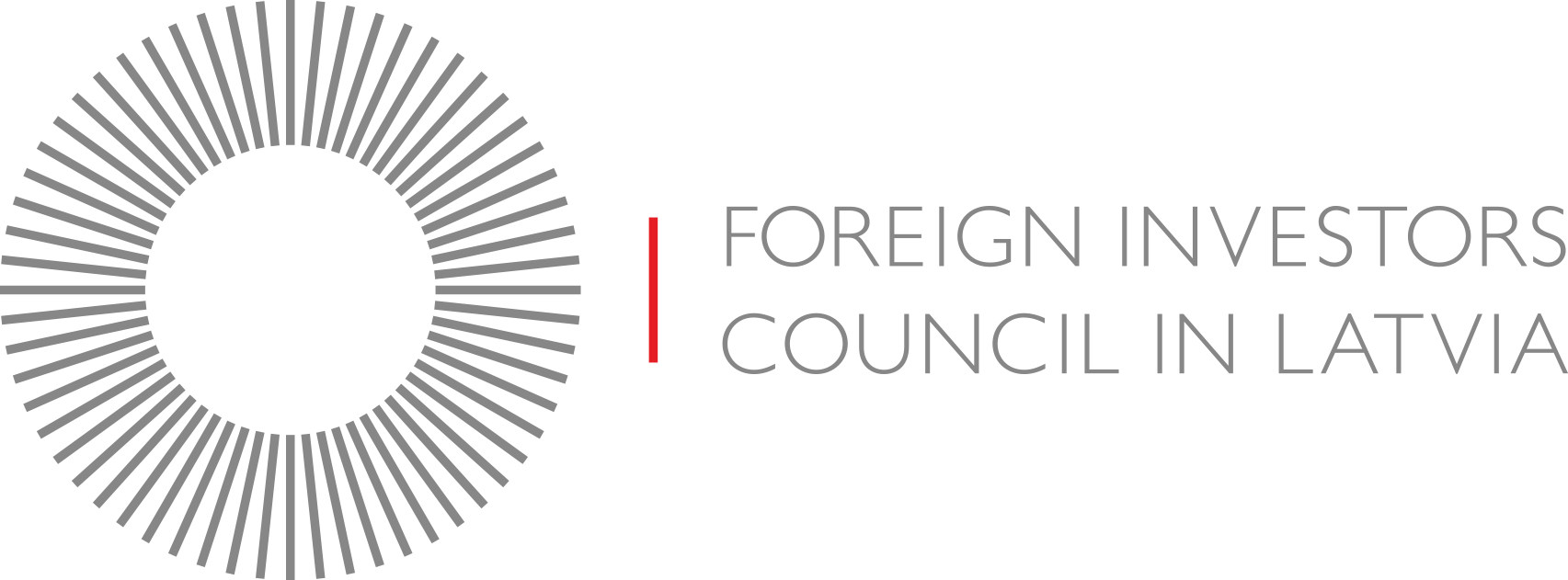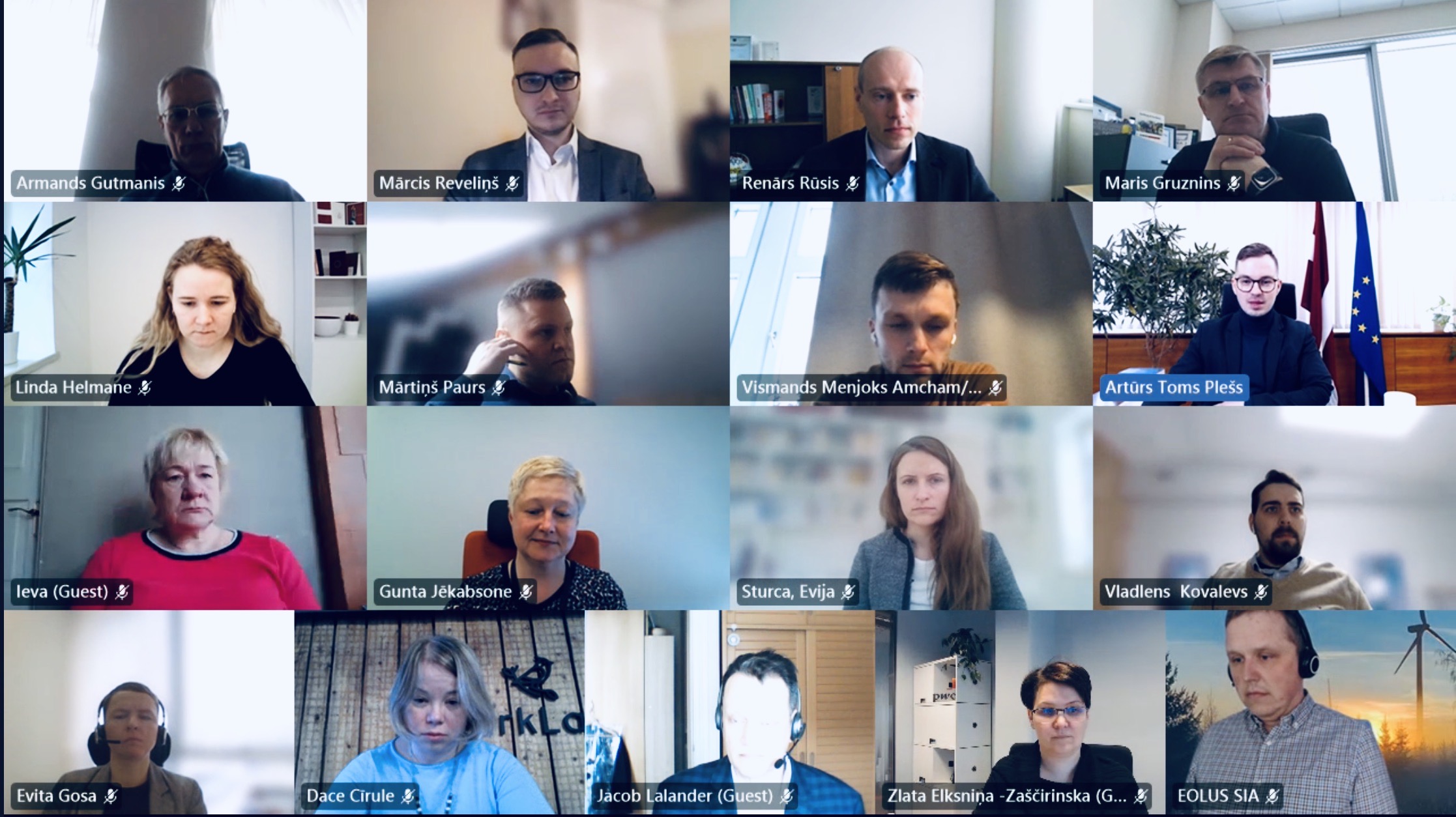On March 8, FICIL Executive Board, together with members from Digitalisation and Green Economy Development work groups, held an online meeting with the Minister for Environment Protection and Regional Development, Mr. Artūrs Toms Plešs.
Ms. Gunta Jēkabsone, Chairperson of the FICIL Executive Board, opened the meeting by thanking the Minister and the Ministry for their willingness to continue the dialogue which was initiated by the FICIL Sentiment Index 2020 discussion in the end of January. This meeting was seen as an opportunity to follow up on the key topics on FICIL’s agenda in the digitalisation and green economy fields – necessity of a state CIO, allocation of RRF funds for long-term reforms rather than short-term needs, and a clear plan to achieve the ambitious green goals.
Mr. Plešs pointed out that digital transformation is, indeed, a prerequisite to boost efficiency and Latvia’s economy. The Minister’s and FICIL’s views certainly overlap in a number of areas. For example, there was an agreement that an efficient allocation of resources requires centralisation of competences and governance in the ICT area. “There is no need for every ministry or institution to keep their own server rooms, which is, in my opinion, pointless,” said Mr. Plešs. In addition, the Minister pointed out that there must be a clearer plan on how to increase people’s digital skills, as the indicators clearly show that the current system is not working, and major changes need to be made. FICIL and the Minister also share the view on the necessity to improve the user experience of tools, such as e-signature, as true digitalisation can only be achieved when such tools are used widely.
While the Minister agreed that introducing a state CIO could be the right direction in the long-term, he expressed his concerns over the ability to go through with it already now due to the current political situation. Nevertheless, Mr. Renārs Rūsis, leader of the Digitalisation work group, invited the Minister to take the extra step. As Mr. Rūsis stated, Europe has already made several brave and previously unprecedented decisions, so Latvia should be brave as well, in order not to miss its chance for significant advancement. The Minister was also reminded that countries at the top of the Digital Economy and Society Index (DESI) typically have a state CIO role, and FICIL reiterated its readiness to give its advice in implementing this role in Latvia.
In terms of green economy development, Mr. Plešs made it clear that a close partnership with the industry will be vital in achieving the green goals. The Ministry is looking forward to playing a larger role than policy-setting and looks to engage with businesses to identify areas for potential research and development, in order to enable new products and services that advance the green economy. “It is pretty clear that we will not be able to do anything much without co-operating with companies and investing in the industry,” stated the Minister. FICIL welcomes these statements, as it has been calling for more clarity in Latvia’s long-term direction with regard to green economy, and is very much looking forward to work with the Ministry and the rest of the government to outline the priorities and way forward.
Ms. Dace Cīrule, leader of FICIL’s Green Economy Development work group, also highlighted the need for accessible, correct and open data, so that we can understand our current status, adjust the course, and prove the end result. Mr. Plešs acknowledged that the data aspect is truly important both for the companies and for the policy makers. Ms. Cīrule also pointed out that in the future, ability to receive financing will highly depend on the ability to prove a company’s green efficiency and integration in the circular economy. The minister agreed that expanding the requirements for non-financial reporting would be a step in the right direction to prepare for these developments.
FICIL looks forward to a continued co-operation with Minister Plešs and the Ministry of Environment Protection and Regional Development.


